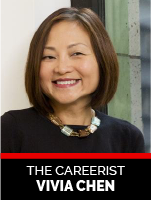Dentons Is Investigating Its Saudi Arabia Office. Here's What We Know.
How do you impose a global code of conduct on a firm of 10,000 lawyers scattered over 70 countries? And can such far-flung offices with their distinct local cultures be expected to abide by a uniform code?
February 07, 2020 at 05:32 PM
4 minute read
 Dentons offices in Washington, D.C. (Photo: Diego Radzinschi)
Dentons offices in Washington, D.C. (Photo: Diego Radzinschi)
When you run a law firm as gigantic and far-reaching as Dentons, which is now the largest firm in the world (home to 10,000 lawyers in over 70 countries), complaints about the misconduct of partners and managers of any given office inevitably take on a local flavor.
Such is the case with Dentons' Riyadh office in Saudi Arabia.
 In early January, I got a long email, complete with exhibits, from an anonymous source who claimed to be part of Dentons' Middle East practice.
In early January, I got a long email, complete with exhibits, from an anonymous source who claimed to be part of Dentons' Middle East practice.
This tipster had two major complaints. The first was that the Riyadh office is run by men who are polygamous and that, more disturbing, they marry and divorce impoverished, young women at will, essentially using them for short-term sexual relationships, the source wrote.
As a result, the source claimed the culture of the office was anti-women. As this source wrote to the firm last fall: "This can have a really bad effect on the ladies," adding that women there are scared of the men.
The other allegation this tipster makes is arguably even more alarming: One of Dentons' partners in Saudi Arabia has ties to Islamic extremism, the source alleges. Included in the email were exhibits of an article for Cage, a controversial Islamic organization, that was allegedly authored by one of the partners. In the article, the author called Americans "blood thirsty" and predicted the killing of Osama Bin Laden would lead to the destruction of America.
Though the article's author and the accused Dentons partner have identical names and both are British lawyers, Dentons says the partner has denied writing the article. (RollOnFriday wrote its own account of Dentons' investigation Feb. 7.)
The upshot to all these mind-spinning charges? Dentons is taking it seriously. So seriously that the firm has hired a global (not local) firm to investigate the Riyadh office. In fact, Elliott Portnoy, Dentons' global chief executive officer, is personally and directly involved in an investigation.
The firm issued this statement: "Promptly after receiving an anonymous communication containing allegations against certain personnel in our Saudi Arabia offices, we attempted to engage with the anonymous sender and initiated an investigation of the claims. Our efforts to engage with the sender of the anonymous communications have not been reciprocated. We take any allegation of violations of the law or Dentons Global Code of Conduct very seriously, and we have undertaken a thorough investigation of the claims involving both internal and external resources, which is ongoing."
Which leads to this intriguing question: How do you impose a global code of conduct on a firm of 10,000 lawyers scattered over 70 countries? And can such far-flung offices with their distinct local cultures be expected to abide by a uniform code?
While I am totally sympathetic to the women who voice concerns about working for men who practice polygamy, I'm not quite sure what can be done about it—especially because polygamy is not illegal in Saudi Arabia. Of course, Dentons can make a big, bold statement and only hire men who seem more supportive of women in their private lives, but is that realistic? As one U.K.-trained lawyer of Pakistani origin located in Riyadh told me, "I'd say 50% of the partners here are polygamous."
Meanwhile, we'll be waiting for the results of the investigation. I mean, who isn't curious about whether Dentons is harboring a partner with terrorist sympathies?
Contact Vivia Chen at [email protected]. On Twitter: @lawcareerist.
This content has been archived. It is available through our partners, LexisNexis® and Bloomberg Law.
To view this content, please continue to their sites.
Not a Lexis Subscriber?
Subscribe Now
Not a Bloomberg Law Subscriber?
Subscribe Now
NOT FOR REPRINT
© 2025 ALM Global, LLC, All Rights Reserved. Request academic re-use from www.copyright.com. All other uses, submit a request to [email protected]. For more information visit Asset & Logo Licensing.
You Might Like
View All


Letter From London: 5 Predictions for Big Law in 2025, Plus 5 More Risky Ones
6 minute readLaw Firms Mentioned
Trending Stories
- 1'If the Job Is Better, You Get Better': Chief District Judge Discusses Overcoming Negative Perceptions During Q&A
- 2Nondisparagement Clauses in Divorce: Balancing Family Harmony and Free Speech
- 3Survey Finds Majority of Legal Professionals Still Intimidated by AI Despite Need to Streamline Mounting Caseloads
- 4Lessons From Five Popular Change Management Concepts: A Guide for Law Firm Leaders in 2025
- 5People in the News—Jan. 15, 2025—Ballard Spahr, Brahin Law
Who Got The Work
J. Brugh Lower of Gibbons has entered an appearance for industrial equipment supplier Devco Corporation in a pending trademark infringement lawsuit. The suit, accusing the defendant of selling knock-off Graco products, was filed Dec. 18 in New Jersey District Court by Rivkin Radler on behalf of Graco Inc. and Graco Minnesota. The case, assigned to U.S. District Judge Zahid N. Quraishi, is 3:24-cv-11294, Graco Inc. et al v. Devco Corporation.
Who Got The Work
Rebecca Maller-Stein and Kent A. Yalowitz of Arnold & Porter Kaye Scholer have entered their appearances for Hanaco Venture Capital and its executives, Lior Prosor and David Frankel, in a pending securities lawsuit. The action, filed on Dec. 24 in New York Southern District Court by Zell, Aron & Co. on behalf of Goldeneye Advisors, accuses the defendants of negligently and fraudulently managing the plaintiff's $1 million investment. The case, assigned to U.S. District Judge Vernon S. Broderick, is 1:24-cv-09918, Goldeneye Advisors, LLC v. Hanaco Venture Capital, Ltd. et al.
Who Got The Work
Attorneys from A&O Shearman has stepped in as defense counsel for Toronto-Dominion Bank and other defendants in a pending securities class action. The suit, filed Dec. 11 in New York Southern District Court by Bleichmar Fonti & Auld, accuses the defendants of concealing the bank's 'pervasive' deficiencies in regards to its compliance with the Bank Secrecy Act and the quality of its anti-money laundering controls. The case, assigned to U.S. District Judge Arun Subramanian, is 1:24-cv-09445, Gonzalez v. The Toronto-Dominion Bank et al.
Who Got The Work
Crown Castle International, a Pennsylvania company providing shared communications infrastructure, has turned to Luke D. Wolf of Gordon Rees Scully Mansukhani to fend off a pending breach-of-contract lawsuit. The court action, filed Nov. 25 in Michigan Eastern District Court by Hooper Hathaway PC on behalf of The Town Residences LLC, accuses Crown Castle of failing to transfer approximately $30,000 in utility payments from T-Mobile in breach of a roof-top lease and assignment agreement. The case, assigned to U.S. District Judge Susan K. Declercq, is 2:24-cv-13131, The Town Residences LLC v. T-Mobile US, Inc. et al.
Who Got The Work
Wilfred P. Coronato and Daniel M. Schwartz of McCarter & English have stepped in as defense counsel to Electrolux Home Products Inc. in a pending product liability lawsuit. The court action, filed Nov. 26 in New York Eastern District Court by Poulos Lopiccolo PC and Nagel Rice LLP on behalf of David Stern, alleges that the defendant's refrigerators’ drawers and shelving repeatedly break and fall apart within months after purchase. The case, assigned to U.S. District Judge Joan M. Azrack, is 2:24-cv-08204, Stern v. Electrolux Home Products, Inc.
Featured Firms
Law Offices of Gary Martin Hays & Associates, P.C.
(470) 294-1674
Law Offices of Mark E. Salomone
(857) 444-6468
Smith & Hassler
(713) 739-1250











